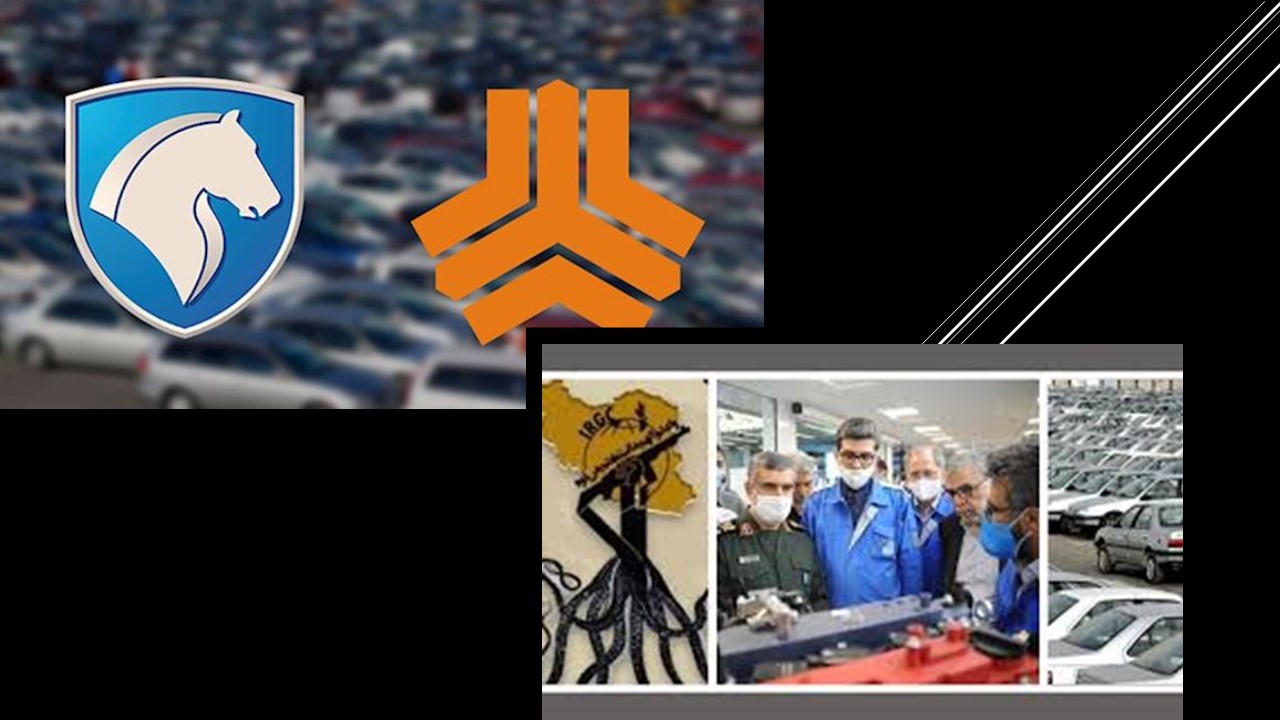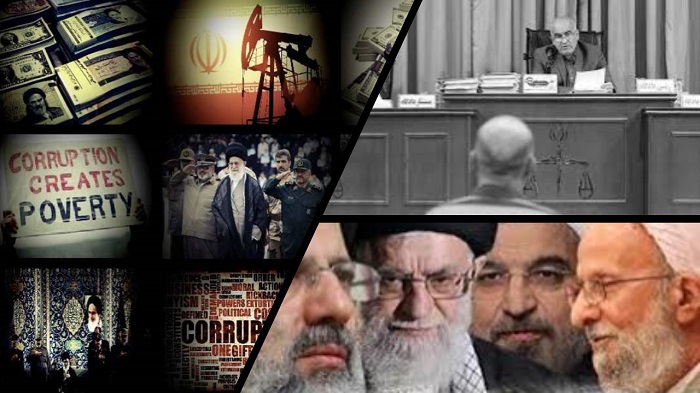
Being an oil-rich country, Iran, the petrochemical industry in Iran was established due to the presence of the oil and gas industry. To help it grow, discounts were provided on basic material while profitable tariffs were permitted. This policy helped the petrochemical industry to flourish, but it had to be changed as soon as possible as the industry moved from being an exporter of raw materials to being an exporter of high quality processed products.
In the mullahs’ regime of #Iran the looting and plundering are inherent and institutional, and their #corruption shows itself in every sector of the economy.https://t.co/jzGr8Mz9Md
— People's Mojahedin Organization of Iran (PMOI/MEK) (@Mojahedineng) January 1, 2021
Because the owners and managers were connected to the regime, they enjoyed easy profits from the regime’s policies and didn’t want anything changed.
The National Council of Resistance of Iran (NCRI), and the People’s Mojahedin Organization of Iran (PMOI / MEK Iran) reported that after 30 years of the petrochemical industry’s life in Iran, many crude and raw products are manufactured at the lowest profit while those key production chains that created both value and employment no longer exist.
Ali Hosseini, an oil and gas expert, was interviewed by the state-run Fars News Agency on December 29th, 2019. He said that the continuation of the rent-seeking activities on the materials required for the gas petrochemical industry has held back the development of the oil value chain. He said that access to natural gas is a right to benefit everyone and these resources shouldn’t be transferred to investors at a low price in order to manufacture products and export them so that a significant income is earned and they don’t even pay any taxes.
Iran’s petrochemical industry, plagued by corrupt regime policies
In the mullahs’ regime of #Iran, the looting & plundering are inherent & institutional, and their #corruption shows itself in every sector of the economy.#IranRegimeChange https://t.co/0PU8BjM9vw pic.twitter.com/caqy6Nxzw1— Kazem (@Kianoosh_sa1) January 1, 2021
7 to 8 million tons of methanols are produced, but most are exported leaving next to nothing for domestic consumption. 10 percent of the country’s total natural gas production has to be used to produce 15 million tons of methanol. Presently, world methanol prices are falling, as are profits.
A petrochemical industry expert told the state-run Mehr News Agency on January 6, 2020, that one of the key reasons for the low cost of the country’s methanol, urea and ammonia petrochemical units is the cheap price of natural gas, which is low compared to the export price of natural gas.
(PMOI / MEK Iran) supporters working in this industry reported that a member of the regime’s Union of Exporters of Oil, Natural Gas, and Petrochemical Products said that the export value of the petrochemical industry is worth almost $12 billion. But if these products were placed in their own complementary production chain and the final product is exported rather and not sold in its raw form up to $50 billion in revenue could be generated.

The polymer industry is losing dollars
Saeed Zakai, a member of the Board of Directors of the National Association of Polymer Industries of Iran, said that 6.5 million tons of polymer products were produced annually and the total volume of polymer and chemical products in the country is about 12 million tons annually but most are exported in its raw form making $12 billion but if these materials were processed and made into final products the revenue would be double and more jobs would be created.
Petrochemical managers are disastrous for the plastics industry
According to the (PMOI / MEK Iran) Analyst the true owners and never to be seen managers of the petrochemical industry are the Revolutionary Guards (IRGC) and agents of the office of regime supreme leader, Ali Khamenei.

They function through big cartels which include institutions and banking networks that gain windfalls from petrochemical rents. Any business owners who do not have a connection to the regime are denied access to potential profits and so they close down.
According to the (PMOI / MEK Iran) Analyst and activists of petrochemical sub-industries, the present high price of plastics and nylon is due to the petrochemicals’ poor performance and management.
The sub-industries are finding it more and more difficult to access raw materials. The supply and pricing policies of the petrochemical complexes cause uncertainty, unemployment, and the loss of the sub-industries so no one is interested in entering the industry anymore.
#Iran’s petrochemical industry, plagued by corrupt regime policies
This regime also uses such revenue to fund rogue regimes & terrorists:
Assad—$15 bn/yr
Hezbollah—$700 mill/yr
Houthis—at least $360 mill/yr
Hamas—$360 mill/yr
Iraqi militias—$150 mill/yrhttps://t.co/a28xNRe1AZ— Heshmat Alavi (@HeshmatAlavi) January 1, 2021
The plastic manufacturers have been thrown into chaos as there are constant interruptions with the supply of raw materials and the bad pricing policies have devastated the industry-leading to almost 40 percent of manufacturers closing down completely.
If plastic producers were allowed to import their own raw materials it would cost them a lot less than the price offered by state-backed petrochemical owners.
According to the (PMOI / MEK Iran) Analyst the truth of the matter is that under the mullahs’ rule, Iran’s economy is riddled with corruption.
Former regime president, Ali Akbar Hashemi Rafsanjani, once said “what is evident is only the tip of the iceberg in the sea of corruption. In the mullahs’ regime, the looting and plundering are inherent and institutional, and their corruption shows itself in every sector of the economy.”
Corruption is widespread. The Iranian people realize that the suffering and poverty they face is because the mullahs have plundered our nation’s wealth. The criminal mullahs have no way out of the crisis of overthrow. #Iran #FreeIran2020 pic.twitter.com/GXiS4cPrg8
— Maryam Rajavi (@Maryam_Rajavi) July 3, 2020
Mrs. Maryam Rajavi the President-elect of the National Council of Resistance of Iran’s (NCRI): Corruption is widespread. The Iranian people realize that the suffering and poverty they face is because the mullahs have plundered our nation’s wealth. The criminal mullahs have no way out of the crisis of overthrow.
and People’s Mojahedin Organization of Iran – MEK IRAN – YouTube







